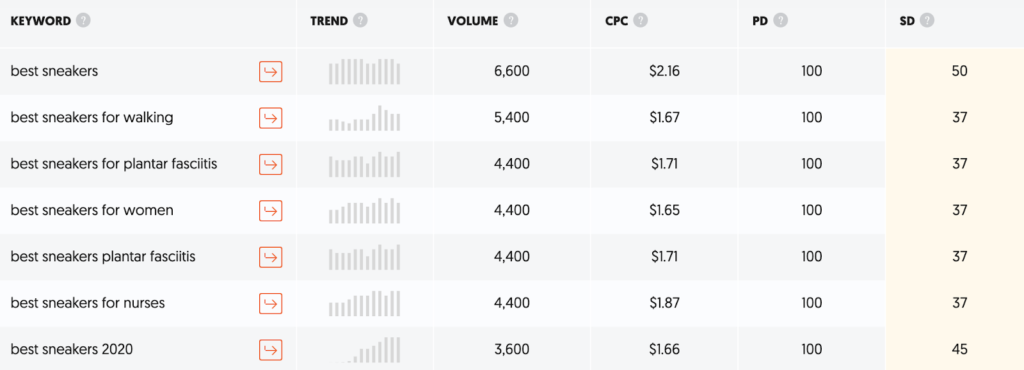Now, more than ever, your customers are turning to the search engines to find the products they need.
Is your store showing up on Google?
Search Engine Optimization is a key way to ensure it does. Optimizing your Ecommerce site for the keywords and phrases your ideal audience is searching for is one of the best ways to guarantee your potential customers will find you.
Here are 10 effective ways to optimize your Ecommerce business for SEO.
ENSURE YOU CAN BE FOUND
All the SEO in the world means nothing if your website isn’t getting indexed. (Indexed simply means that search engines have found and added your site to potential search results.) Since the Search Engine Results Page (SERP) isn’t a live version of the web – and is instead a copy – it’s vital you’re getting indexed.
1. Site: Command
Check that you are by Googling site:mywebsite.com and see all the pages the search engines know about. Are all of your pages listed there? Do you have pages listed that shouldn’t be there (such as private pages, landing pages, or other nonsensical pages)?
2. Google Search Console
Secondly, use Google Search Console to your benefit by checking indexed pages (under the Coverage section) to see all the pages Google is crawling.

Be sure to go above and beyond by submitting your sitemap (under the Sitemaps section) in Google Search Console, so that no new pages ever go overlooked.
FIND OUT WHAT KEYWORDS YOUR AUDIENCE IS SEARCHING FOR
Guessing what keywords your ideal customer is searching for online is a surefire way to assume (and you know what that means).
3. Google the Competition
Instead, start by getting inspired by your competitors. Use the same site:mywebsite.com search command from the first tip, but use a competitor’s URL this time.
You’ll start to see what keywords they’re using in the title (the blue text and link to the website) and description (the black text below) and this should get your wheels turning for potential keyword opportunities in your own site.
4. Perform Keyword Research
Next, incorporate the competition’s keywords – along with your own ideas – in a keyword research tool. Some of our favorites are Google Ads Keyword Planner, Ahrefs, and Ubersuggest. There are a number of paid and free keyword research options out there.

5. Use Content Ideas To Your Advantage
Throughout your keyword research, you’ll undoubtedly find longtail keyword opportunities. These long form keywords offer specific questions and opportunities for content creation.
For instance, “how to find the perfect shoe” may come up in your research. This may not fit with a page on your website, but instead offer an opportunity to create a blogpost, social media post, and even email about “How to Find the Perfect Shoe: 5 Tips from the Experts.”
FOCUS ON PRODUCT PAGE OPTIMIZATION
Ecommerce websites are made up mostly of product pages. So if your product pages aren’t showing up in search, you need to make some SEO changes now.

6. Create a Recipe for Keyword Success
If you have a large Ecommerce store, it’s going to be close to impossible (or at least take forever) to create unique page titles, meta-descriptions, and headers for each of your product pages.
As some of the most important areas for optimizing for your target keywords, it’s critical that these areas are unique and incorporate the keywords as much as (naturally) possible.
One of the best ways to accomplish this on an Ecommerce website is build a recipe for product pages so that your site dynamically creates the pattern. For instance, a great title might be: “Product Name: Product Category | Business Name.”
7. Avoid Duplicate Content
Search engines don’t like duplicate content. Essentially, when given the option between two pages with extremely similar (or even perfectly duplicate) content, search engines will choose one to index and show to searchers.
For Ecommerce stores, this can be the kiss of death for your product pages. That’s why it’s imperative to make all pages on your website as unique as possible.
8. Incorporate Reviews & Social Proof
As far as we’re concerned, SEO isn’t just about your audience finding you through search. It’s about leveraging search for better conversions.
Incorporating a review system for your product pages, along with a way for customers to upload their own photos using, wearing, or with your products, provides invaluable benefits for future shoppers (and therefore for your bottom line).
NEVER STOP IMPROVING
Use clear data points to measure your success against opportunities for better SEO.

9. Use Google Search Console for Keyword Performance
The performance area within Google Search Console may be amongst one of the most powerful ranking tools at your disposal. Ensure your rankings are in line with your keyword goals and continue to make changes based on the data you see.
10. Connect Ecommerce Values to Google Analytics
Use Google Analytics’ powerful Ecommerce tracking to see sales on your website as they align with conversions will give you critical data to prove what’s working and what’s not. Not only is this important for SEO, but it will also show how your online efforts correlate with actual sales.
Follow these 10 tips for leveraging SEO for your Ecommerce business today.
If you need help creating a digital marketing presence that represents your business and reaches your target market using SEO, contact us at OSC Web Design.


